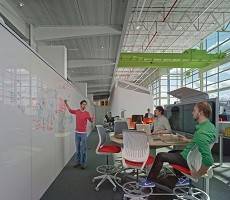December 17, 2014
Only a third of staff trust their senior management, finds CIPD
 There is little evidence of improvement in the quality of management in the UK over the last decade – and it is one of the reasons behind the UK’s long-standing productivity weakness compared to the likes of the US and Germany. According to the CIPD report ‘Are UK organisations getting better at managing their people?’ while 65 percent of employees are generally satisfied with their line manager and largely trust them and value their honesty, only 33 percent say they trust their senior management. It found that management processes are not always applied consistently or fairly and this is one reason why there is a lack of trust in senior leadership. These are deep-rooted problems and the solutions are largely down to organisations, says the CIPD, which is urging the Government to consider ways in which it can raise awareness of the challenges and potential approaches to tackling them, not least in its capacity as an employer.
There is little evidence of improvement in the quality of management in the UK over the last decade – and it is one of the reasons behind the UK’s long-standing productivity weakness compared to the likes of the US and Germany. According to the CIPD report ‘Are UK organisations getting better at managing their people?’ while 65 percent of employees are generally satisfied with their line manager and largely trust them and value their honesty, only 33 percent say they trust their senior management. It found that management processes are not always applied consistently or fairly and this is one reason why there is a lack of trust in senior leadership. These are deep-rooted problems and the solutions are largely down to organisations, says the CIPD, which is urging the Government to consider ways in which it can raise awareness of the challenges and potential approaches to tackling them, not least in its capacity as an employer.


























February 2, 2015
Staff calling in sick could be a symptom of management malaise
by Sara Bean • Comment, News, Wellbeing, Workplace
If your office seems strangely quiet this morning it might be due to the fact today is ‘national sickie day’. The first Monday in February is the day of the year which traditionally sees the highest number of workers calling in sick. It’s been argued that many of these people could in fact be looking for a new job, but whether your staff are sick or on a job interview, these absences may be indicative of a deeper problem, and it in all probability lies with the quality of their managers. According to recent research, one in seven people (16%) have had to take sick leave due to a bad manager and a fifth of people would turn down a job offer if their new manager had a bad reputation. The research also found that those who find themselves being poorly managed are more likely to take radical action and leave a job than tackle the issue with their HR department.
(more…)